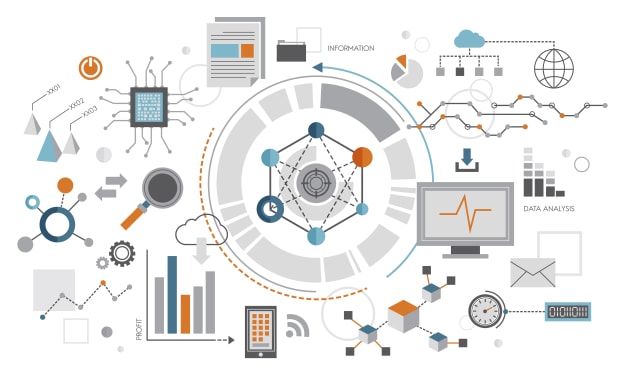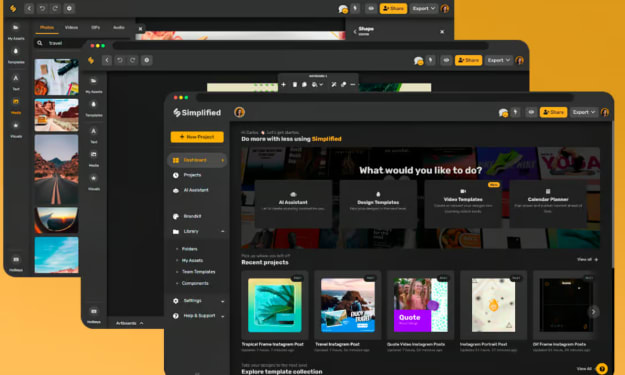Incredible Technological Predictions Made by Bill Gates 25 Years Ago
Mark Zuckerberg was just 11 years old when Bill Gates “predicted Facebook.”

Bill Gates has shared his thoughts about the future of technologies in his famous book, published 25 years ago — “The Road Ahead.”
He made some bold predictions about the technologies, breakthrough in computing, the Internet, the growing power of AI, and machine learning that were supposed to come in the nearest future.
When the “Road Ahead” was published, people were still using newspapers, listened to music on their CDs, and referred to others for advice. It was hard to imagine to what extent the technologies would change our lives.
I felt like an alien from the distant future when I was reading the book. I often questioned how could Bill Gates have been so detailed in his predictions? Indeed, he described many innovations that have already become a reality.
Besides, he mentioned many things that sound hilarious for a modern man, like a “panic button” in phones.
Here are the most unbelievable, fascinating, and hilarious predictions made by Bill Gates 25 years ago.
“Personal Computers Will Evolve Into the Wallet PCs”
I’ve got my first personal computer when I was 9. I remember my father purchased all computer parts separately to compose a powerful machine that could serve me for years.
It was a heavy desktop computer I could use at home only. I remember drawing some ugly pictures in Paint, creating primitive presentations in PowerPoint, and playing Spider Solitaire (who played Microsoft Solitaire games will understand me now).

My whole family got addicted to the personal computer; it became an excellent entertainment tool, gathering the entire family in the evening.
However, no one could predict how much it will change in the next 10 years. No one, except Bill Gates, the man who created Microsoft.
This is how Bill Gates described a rapid evolution of computers into smartphones, which he called Wallet PCs back then.
Within a few years, many people won’t think of a home PC as a computer as much as they’ll think of it as a simple tool for accomplishing a number of tasks, including entertainment tasks.
Notebook computers will continue to get thinner until they are about the size of a tablet of paper. Many phones will have small, flat screens and tiny cameras.
You’ll be able to keep your necessities — and more — in an information appliance I call the wallet PC. It will be about the same size as a wallet, which means you’ll be able to carry it in your pocket or purse. It will display messages and schedules and let you read or send electronic mail and faxes, monitor weather and stock reports, and play both simple and sophisticated games.
At a meeting, you might take notes, check your appointments, browse information if you’re bored, or choose from among thousands of easy-to-call-up photos of your kids.
Rather than hold paper currency, the new wallet will store unforgeable digital money.
Wallet PCs with the right equipment will be able to tell you exactly where you are anyplace on the face of the Earth.
Bill Gates has also predicted that Wallet PCs will have a “panic button” you press and immediately call emergency help. Besides, he stated some phones will have thermometers, barometers, altimeters, and heart-rate sensors.
It might sound hilarious, but I liked the “panic button” idea. However, I am not sure I would have paid $1,000+ for a sophisticated Wallet PC, as Bill Gates anticipated.
“Video-on-demand Will Allow People Select From Countless Programs”
We are now having the privilege to watch anything we want any time we want. Services like Youtube, Netflix, HBO have entirely changed the way people consume video content.
You no longer have to rush home in the evening or wake up early in the morning to watch a favorite show. It is available online anytime. However, a decade ago, people did not have this privilege.
“Conventional television allows us to decide what we watch, but not when we watch it. “— Bill Gates.
In his book, Bill Gates recalls watching “The Ed Sullivan Show” sharply at 8 P.M. on Sunday nights. He wrote many Americans tried to be at home and watch the show since no one knew if they could do it any time later.
People wanted to consume video content, but the possibilities were limited. Bill Gates stated the consumers have already realized the value of video content and were ready to pay for it. Thus, the development of on-demand video technologies was just a matter of time.
Here are some thoughts from the book:
If a new episode of Seinfeld is on at 9:00 P.M. on Thursday night, you’ll also be able to see it at 9:13 P.M., 9:45 P.M., or 11:00 A.M. on Saturday. And there will be thousands of other choices. You’ll indicate what you want, and presto! you’ll get it.
Even if a show is being broadcast live, you’ll be able to use your infrared remote control to start it, stop it, or go to any earlier part of the program, at any time. If somebody comes to the door, you’ll be able to pause the program for as long as you like.
You’ll be in absolute control — except, of course, you won’t be able to forward past part of a live show as it’s taking place.
“Technology Would Allow Unprecedented Social Networking”
It is worth admitting to what extent online social networking has changed our lives and habits. For instance, I no longer expect people to call me. I say, “Write me some time.” Whenever I get an unknown call, it makes me feel nervous.
I have a few seconds to pick up the phone, but my brain does not want me to do it. Instead, I prefer getting messages and responding to them at my earliest convenience. Surprisingly, I am not the only one who likes messaging.
According to the USA OpenMarket national wide survey, over 75% of millennials responded they would rather send a text message than call.
This trend has been slowly growing for a decade. Here is what Bill Gates wrote about it in his recent blogpost:
I am surprised, though, by the way, social networks are both bringing us together and contributing to a more polarized atmosphere. I didn’t anticipate how much people would choose to filter out different perspectives and harden their own views.
One of the most remarkable aspects of this new communications technology is that it will eliminate distance.
I’m writing these words at home on a summer evening, but I have no idea where or when you’ll read them. One of the benefits the communications revolution will bring to all of us is more control over schedules.
The first social media platform was born in 1997, which is 2 years after Bill Gates had published his book. It is fascinating how he managed to predict the era of social media technologies when, literally, nothing existed yet.
As a fun fact, Mark Zuckerberg was just 11 years old when Bill Gates “predicted Facebook.”
Final Thoughts
Future is a mystery that humankind always wanted to know in advance. However, this gift has not been granted to us. All we can do is learn from the past and make predictions for the future.
Bill Gates published his book about the future of technologies in 1995. He was bold enough to say how the 21st century would look.
Nowadays, he admits:
I was too optimistic about some things, but other things happened even faster or more dramatically than I imagined.
Moore’s Law states that the computer processing speed is doubling every 18 months. It is another remarkable manifestation of how technological changes occur at an exponential rate.
How will our world look like in 2050? No one knows. Perhaps the new Bill Gates’ book will answer this question.
About the Creator
Victoria Kurichenko
Self-made marketer & content writer. Writing daily. Creating SEO-friendly content for 3 years.
My site: https://selfmademillennials.com/
Let's get in touch: https://www.linkedin.com/in/victoria-kurichenko/







Comments
There are no comments for this story
Be the first to respond and start the conversation.